#continental navy
Text
Today in 1776 these daddies got together on Staten Island to discuss a truce but nothing was agreed to....

#Benjamin Franklin#John Adams#Edward Rutledge#Lord Howe#Admiral Richard Howe#continental congress#british royal navy#American revolution#18th century#1776#founding daddies
7 notes
·
View notes
Text
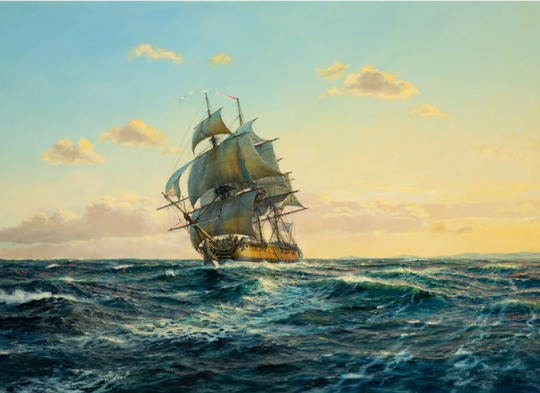
The Continental Navy Frigate 'Raleigh' Off a Coast, by Roy Cross, 1995
156 notes
·
View notes
Text
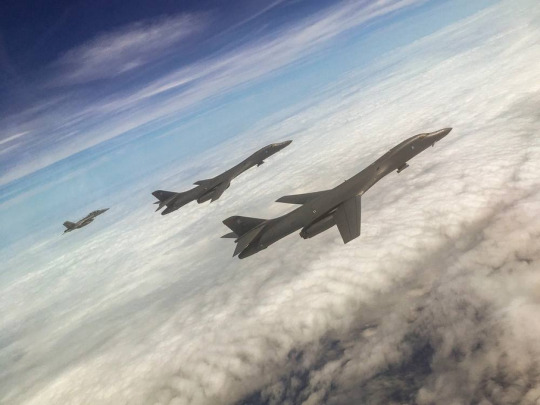
A U.S. Navy F/A-18E Super Hornet, operating from the Harry S. Truman Carrier Strike Group underway in the North Atlantic Ocean, intercepts two U.S. Strategic Command (USSTRATCOM) B-1B Lancers as they enter the Canadian Air Defense Identification Zone, and again as they enter the Continental U.S. North American Aerospace Defense Command (NORAD) Region, May 29, 2020. The intercepts were part of a U.S. Northern Command-led, large-scale homeland defense exercise. U.S. Northern Command's top priority is homeland defense, and leading complex multi-combatant command operations across multiple domains demonstrates USNORTHCOM’S readiness to defend the homeland regardless of COVID-19. The high-end homeland defense exercises are being executed by the USS Harry S. Truman carrier strike group. (U.S. Navy photo by Lt. Neil Armstrong)
59 notes
·
View notes
Text
Up Where We Belong
Part One
Pete “Maverick” Mitchell x Writer!reader
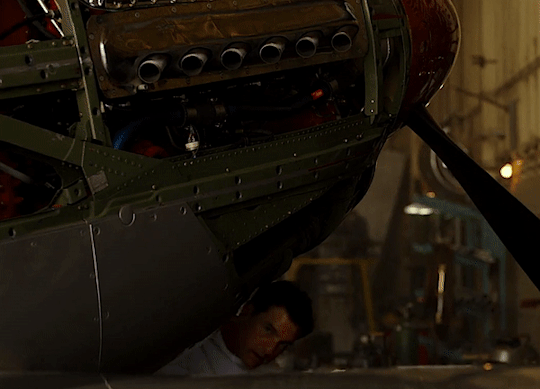
Up Where We Belong Masterlist
Synopsis: When a writer experiencing horrible writer’s block goes to the Apple Valley Airshow for inspiration, she meets a certain older, daring naval aviator, leading to maybe a little more than just inspiration.
Warnings: Mentions of hospice and family member deaths, age gap (reader is in their late thirties to early forties).
But really, this is just fluff.
Author’s Note: The plot bunnies have reproduced at an unholy rate, and I am so stupid for writing this, especially since I have another chapter of “Wherever You Go”, to write, the first chapter of “Safe and Sound” and a MavDad story to finish.
The second part and another Mav story is lined up, but at this point, I’m not going to complain, because at least I’m writing, and Mav is finally getting more of my writerly attention.
We’ll see what gets finished next, 😂.
#writerlife
Again, I name a story after a song, from another movie about the Navy, funnily enough.
(Only three of my stories on my masterlist are not named after songs—I can’t stop, apparently)
So here we go!

She had always been somewhat interested in planes—it was hard not to be, when most of her family was in commercial aviation.
Her father had flown for nearly thirty years for American, her younger brother was currently a first officer coming up on his command upgrade with Delta, and her grandfather, whom she affectionately called PopPop, had flown for Continental.
Some of her fondest memories were looking over her grandfather’s maps and airport diagrams, and sitting on his lap while he taught her how to use an analog flight computer.
But one day, when she was home from her freshman year of college, where she was taking her degree in English, her grandfather took her up to the attic to show her something.
It was a footlocker from World War II, the faded paint on the outside reading “USAAF”.
“This was your granduncle Joseph’s—my eldest brother.
He was a P-51 pilot.
He ran many successful missions in his aircraft until he got shot down saving his wingman’s life, near the end of the war.”
PopPop opened the footlocker, revealing a faded American flag folded into a tricorn lying neatly atop several dark greenish-brown uniforms.
PopPop gently lifted the flag and uniforms out of the footlocker, uncovering yellowed, brittle-looking maps, a compass set, and a thick stack of letters, tied together with a black ribbon.
It was the stack of letters that PopPop lifted out, and held out to her. “Look at these, and read them.”
She did, and the story the letters contained was beautiful and heartbreaking.
Her granduncle had fallen in love with a woman who was a member of the French Resistance, named Céline, whom he’d met during a covert resupply mission, and they even had plans to marry after the war.
But she’d died in a skirmish with German soldiers in Paris, leaving him so bereft that he’d taken to writing letters to her specter, just to have an outlet for his grief.
The last letter in the pile was heartwrenching, where her granduncle Joseph talked about how he was only living because she would want him to, only being careful in the air because she’d want him to.
She’d cried reading the letters, and she’d asked PopPop why he’d wanted her to read the letters.
“I wanted someone else to know their story,” he’d simply replied.
“No one else knows?”
He hummed, considering his answer. “Sometimes you keep some things to yourself until the right person to tell comes along.”
A few years passed, and when PopPop was on hospice, the two of them were watching “Band of Brothers”, when she remembered Uncle Joe, as she’d taken to calling him in her head.
“What’s going on in that bright head of yours, darling?” PopPop’s voice interrupted her thoughts.
“Oh, uh, nothing much, I was just remembering Uncle Joe.
Thinking that he and Céline deserved better.”
“They did.”
She shook her head, “I wish I could write them a happier ending, you know?”
PopPop hummed weakly. “Well, why don’t you?
If anyone could do it, it would be you.
If you do that, I’m sure in a few years, those English professors of yours would be saying that they taught a great American author.”
She was shocked and touched. “Wha—I—well, I guess I could, but, are—y-you’d be okay with that, PopPop?”
He laid a cold hand on hers, “I wouldn’t trust it to anyone else, my dear girl.”
“Okay,” she smiled tearily, and nodded, the two of them returning their attention to the episode.
A week later, PopPop passed, and many things happened over the ensuing years that caused the idea of writing about Uncle Joe to be put on the back burner.
In fact, she forgot all about it, until she was sitting on her couch a couple of weeks after having been let go from her job as an English teacher at her local high school.
She was mindlessly watching an episode of some show she couldn’t even remember the name of, when her eyes landed on the footlocker which PopPop had given to her in his will.
The memory of PopPop encouraging her to write about Uncle Joe came back to her, and she paused the episode, strode over to the footlocker, carefully opened it, and drew out the letters.
Madly, over the course of the next several hours, she reread the letters, numerous research-related tabs quickly opening up on her phone, tablet, and laptop.
As months passed, she made good progress on her first draft, but somewhere along the way, about slightly less than halfway through her intended story beats, she hit the dreaded dead end, writer’s block in full force.
Rereading the letters did nothing—every line she wrote, she deleted; she felt lost, and like she’d completely lost Uncle Joe and Céline’s voices.
She felt right back at square one.
Then, one day, as she was looking at her brother’s latest Facebook reel from his layover in Korea, she saw an advertisement for the Apple Valley Airshow, which would feature an aerobatic demonstration with an actual, airworthy P-51.
Maybe seeing the aircraft her Uncle flew would shake something loose in her brain so she could move forward.
She didn’t even hesitate—she immediately booked a ticket, and prepared herself to take down a lot of notes.
The airshow was absolutely wonderful, and even though she never got as into aviation as the rest of her family, it was still something which fascinated her, and seeing the planes made her marvel all over again at the miracle that was aviation, how humankind had successfully taken the skies for itself through brutally elegant means.
Finally, it was time for the reason she’d come—the emcee began, “Now, everyone, you’re all in for a treat, because up next, we have a nearly eighty-year-old aircraft, a P-51K named Bianca, and she’ll be giving us an aerobatic demonstration!
So let’s give a warm Apple Valley Airshow welcome to Bianca and her owner and pilot, US Navy Captain Pete Mitchell!”
She clapped along with everyone else, eagerly awaiting the arrival of the P-51.
Soon, the sound of a propeller engine grew louder and louder, and then, there she was.
Bianca was gorgeous, gleaming silver with red markings, the American star roundel on her side.
The shining aircraft got closer and closer to the ground, towards the crowd, and just as she was about to worry that the P-51 was in an upset condition, the plane pulled up slightly, buzzing the transfixed people.
Laughing in awe and delight, she clapped with everyone, and watched as the daring pilot put the plane through a series of hair-raising spirals, rolls, dives, and elegant, breathtaking passes with such precision, skill, and ease, just knowing that whoever was flying that old girl had aviation in his blood as surely as it ran in hers; it made her wonder what her granduncle would say about how the venerable fighter was being flown.
Before she knew it, the demonstration was over, and with another low pass and wing wave, the P-51 flew off to land.
It actually took her a moment to come back to herself, she was so stunned by what she saw, and she knew she had to see Bianca up close.
After asking for directions to the flight line, she scanned the row of planes, eventually spying a flash of red.
She walked over, catching sight of a tall, mustached man a few years younger than her, standing in front of the aircraft, wearing a borderline-obnoxiously-loud Hawaiian shirt unbuttoned over a white tank and jeans, stereotypical Ray-Bans pushed up onto his head.
“Excuse me?”
“Yes?” the man replied.
“Is this the P-51 which flew a few minutes ago?
She is a P-51, right?”
“That’d be a yes to both questions, ma’am.”
She chuckled grimly at the idea that her age was maybe showing enough for her to be ma’am-ed by someone only a few years younger than her. “Are you the owner?”
He scoffed, good-naturedly. “Nah, that’ll be my dad.
Hey Dad, someone wants to talk to you!”
A moment later, a man stepped out from under the P-51, and she’d absolutely be lying if she said her breath didn’t catch.
First off, if she had to guess, he was older than her, but there was something about him which made him seem younger than his age.
Then there was the fact that he was absurdly good looking—ridiculously so, in fact; impossibly raven-dark hair, mischievously sparkling, brilliant green eyes, and a physique that people half her age would kill for, all sinewy muscle, visible with the snug white t-shirt and jeans he was wearing.
The final nail in the proverbial coffin was his smile—God, it belonged in a museum, because it was a work of art, and coupled with his roguish air, everything about him screamed the most delicious kind of trouble, sending echoes of Whoopi Goldberg’s voice saying, “You in danger, girl,” through her head.
“Hi,” he began, extending his hand.
Luckily for her, she was quick on the draw, and extended her own hand, proffering a “Hi,” of her own, though she kicked herself at the fact that the next words out of her mouth were, “Are you the owner?”
Oh, well—couldn’t win them all.
His grip was firm and calloused, but gentle, without the cool metal band she expected on his fourth finger, quick eyes observing the lack of even a pale band of skin on the same finger, and she shook herself from the observation in time to hear his, “That’s me—Pete Mitchell, you can call me Mav.”
At her quizzical look, he continued, “It’s short for my callsign, Maverick—I’m Navy.”
She nodded, “The emcee did say you were Navy, and that tracks; judging from that impressive demonstration, you don’t strike me as the kind who blends in.”
“Thank you—I aim to please,” he grinned.
Miraculously, she managed to ignore his brilliant, beautiful smile, somehow mustering a “Well, you certainly delivered,” before she introduced herself.
A cough from the younger man, Pete’s son, made her realize that she hadn’t let go of Pete’s hand, and vice versa, which caused the two of them to practically spring apart.
“Oh, uh, this is my son, Bradley,” Pete introduced the younger man, reaching nearly comically up to wrap an arm around Bradley’s shoulders.
“Nice to meet you, Bradley,” she replied, trying to recollect herself while her mind acted like it was the first time she’d interacted with a good-looking man.
“Nice to meet you too, ma’am.”
“I look that bad, do I?” she chuckled.
“Just the way he was raised,” Pete proudly said, patting his son on the back.
Embarrassingly, she just then remembered the reason she was here. “Oh, I—I actually had a few questions for you, Pete, about the P-51, because I’m writing a book, and I wanted to get some details.”
His eyes lit up. “Details about this old girl, huh?
I can do that; come on, let me show you around.” He moved to the side of the aircraft and gestured grandly. “Bianca here’s a Dallas-built North American P-51K, with a Packard V-1650-7 engine and an 11 foot diameter Aeroproducts propeller.
She was donated to the Civil Air Patrol in 1946, and I acquired her in 2001.
I’m not sure if she ever saw combat, because her military flight logs were lost, but I know for a fact that she routinely patrolled the California skies way back when.
Let me show you the controls.”
He nimbly boosted himself up to the wing and held his hand out to her. “Come on up.”
“Uh, is this a wise decision?” she asked, glancing between his hand and the wing. “She is nearly eighty-years-old.”
Pete laughed, “She’s stronger than she looks, and these girls were made to withstand this sort of thing, come on.”
Deciding to trust his judgment, she took his hand and jumped up to the wing at the same time as he pulled her up, causing extra momentum which propelled her body into his.
He caught them on the edge of the cockpit, and after a second, she realized that she was pressed up against his body, both hands resting against his…very solid chest.
She prayed that her suddenly pounding heart and the burning flush on her cheeks could be discounted as a reaction to her stumble.
“I’m so sorry,” she breathed, scrambling back to put some distance between them for her sanity’s sake, while trying not to fall off either wing edge.
“Eh,” he waved off, “that’s my fault, I should have said I’d pull you up,” as he shifted to kneel on the wing. “You okay?”
“Yeah,” she replied breezily, “I believe you were about to show me the controls?”
“Mm-hmm, come here.”
They slowly adjusted themselves into a configuration that enabled them both to see into the cockpit, and he pointed out the many gauges—explaining each one—and the literal stick stick, which looked nothing like the controls of any aircraft she’d seen in person or in the movies, as well as her general flight capabilities and technical specifications.
A further glance to the right showed something she didn’t expect to see. “I thought the P-51 was a single seat aircraft?”
Pete absentmindedly rubbed the back of his neck, “They are—I made a… few modifications.”
“Oh.”
“You want to sit in her?” he offered, gesturing to the pilot’s seat.
She was not about to pass up an opportunity like that. “I—wh—sure!”
He carefully helped her into the cockpit, and once settled, she breathed in and out while she absorbed this moment, and imagined her granduncle sitting in a seat similar to this one, looking out at the boundless sky. “Wow,” she reverently murmured.
“I know, right?”
“This is amazing, that aircraft like this is still around and still flying, I mean—this is history,” she said, getting slightly emotional.
“It is; she is.”
After a few beats longer, she sighed, and reached for his hand so she could get out, and he carefully eased her out of the cockpit, onto the wing, then both of them back onto the ground.
“Thank you, for showing me around, this was really helpful, Pete, I think this really helped me.”
“You’re welcome,” he nodded easily. “If I may ask, what kind of book are you writing?”
For the briefest second, she instinctively recoiled from the idea of telling the story, but then, some part of her heart said that Pete Mitchell was someone she could tell this story to. “It’s uh, a fictional version of my granduncle Joe’s love story; he was a P-51 pilot during World War II, and he was in love with a woman in the French Resistance named Céline.” She turned to look at Bianca’s gleaming fuselage. “But they both died in the war; she was killed by the Germans, and he got shot down saving his wingman soon after.
I never even knew until my first year of college, when my grandfather told me the story through the love letters my granduncle and Céline wrote.
When my grandfather was dying, I told him that I wished they had a happy ending, and… well, he told me to write it for them, since I was an English major.
So here I am,” she shrugged, turning to face Pete.
He looked grave and touched. “That’s… that’s beautiful.”
“Thank you, I have to admit, I’ve wondered if what I was doing was disrespectful.”
“I know quite a few people who deserved happy endings that didn’t get them,” he glanced into the distance, a wistful, pained look in his eyes. “If I can help at least two people who didn’t have their happy endings in this world get it somehow, I’m more than willing to help.”
She sincerely replied, “Thank you for the validation,” wondering what his story was.
“You’re welcome.
And uh… you know what?
Gimme a second.”
He leapt back onto the P-51’s wing, and rummaged through the cockpit, pulling out a flight log book and a pen, hastily writing something on a page, before he tore it out, and leapt back down.
“Here, it’s my number—if you had any more questions, feel free to call, I’d be happy to answer them.”
If she had been placed in a similar situation as this maybe twenty years ago, she’d have probably done something to embarrass herself, because this—things like this didn’t happen to her—they only happened in movies, but here she was.
He gave her his number—yes, it was if she had any research questions, but still.
‘Get a grip, woman, just because you didn’t see a ring doesn’t mean he isn’t in a relationship,’ she told herself, trying to project “Respectable Professional Woman”, while her inner adolescent was trying its level best to come out.
“Th—thank you,” she managed to get out, with only a minute stammer on the first syllable.
“I’m serious, call if you need anything—I mean—there’s not a lot of people out there who can tell you what it’s like to actually fly one of these beauties.”
“Be careful,” she chuckled, already determined not to call unless it was absolutely dire, “You don’t know if I might take you up on that offer.”
“It’s what I gave you my number for,” Pete winked, and she commended herself for keeping it together.
Deciding to quit while she was ahead, and while she still seemed like a normal human being, she came in for final approach, as her dad would put it, with, “Alright—I better go, I’ve already taken too much of your time.”
“It’s fine, it’s always a pleasure to talk to someone about this girl.”
“Thank you again,” she stated, honestly grateful, feeling the creative juices flowing and simmering in the background.
“You’re welcome.”
And with that, she walked away, exhaling evenly for so many reasons.
That night, she wrote and wrote just as she expected, and the story was flowing.
That is, until she hit another wall just before the next weekend.
And this one was even more stubborn than the first.
It didn’t help that she had written herself into a corner with this dogfight scene she was on—she had no way of knowing if the tactics were sound, and she was thinking of completely cutting it, but it seemed so stilted without it, and she had no idea of how to avoid writing this scene.
But one part of that thought, she realized, wasn’t true.
Her gaze landed on her coffee table.
The sheet of flight log paper with ten numbers written on them stared tauntingly back at her, daring her to call Pete.
“Nope, no, I am not going to do it,” she told herself. “No—absolutely not.
I’m sure he has better things to do than answer stupid questions.
No—I will not call him.”
The paper raised a nonexistent eyebrow.
“No!” was her battle cry, and she turned back to her laptop screen, but it offered no relief.
The depressing reality of her blinking, unmoving cursor cackled at her in harmony with the flight log paper.
It was like that healthy cereal ad from years ago, with the little girl in a prim uniform, enticingly calling “Donuts?”
However, after ten more minutes, the dictatorship of the blank page grew too cruel and harsh, and she folded like a house of whatever was more insubstantial than cards.
“Fine,” she muttered, snatching up the paper. “I’ll call, but if he doesn’t answer, it’s no skin off my back—I’ll manage… somehow.”
At least that’s what she told herself.
She dialed the number, heart pounding as the phone rang…
And rang…
And rang…
And rang.
She was just about to breathe a sigh of conflicted relief and hang up, but then the line clicked, and she heard a slightly breathless “Pete Mitchell.”
“Hi,” she blinked, cursing herself for not thinking through what she was going to say. “I don’t know if you remember me, we met at the Apple Valley Airshow—”
“__, right?
The writer.”
“Yeah, that’s me, you said I could call if I had any questions,” she scratched her head.
“Uh-huh.
I’m guessing you have one,” she could hear the smile in his voice.
“More like a lot, really.
I’ve unfortunately written myself into a corner, it’s this dogfight scene, and there’s no way I can currently remove it without sacrificing practically all of my progress since last week.
I just need to know if the tactics are sound.”
“Huh.”
“I—you know, I can figure it out myself, if it’s too much trouble—”
He interrupted, “No, it’s no trouble, I’m more than willing to help, in fact… uh, this might sound—weird and uncomfortable—or—both, really, but if you want, why don’t you come out to my hangar tomorrow, we can talk about this, rework your scene if we need to, without having to do video calls or text or email.”
“Oh,” she breathed, eyes wide.
“I promise I’m not a serial killer or anything,” he chuckled.
“I—thank you for the reassurance, by the way—but I mean, that’s a lot of confidence in how well I can write a dogfight.”
“It can’t be all that bad,” he assured.
“I’ll just prepare to be ripped to shreds,” she half-teasingly replied.
Pete snorted. “Even if it were that bad, I wouldn’t rip it to shreds—I save that for my new students.”
She couldn’t help but laugh. “I don’t know what’s worse, being torn apart or the porcelain treatment.”
“How about a balance, then?”
“I’d be very happy with that.”
“So… is that a yes to coming out to my hangar?”
“I… suppose it is,” she replied, before she could convince herself otherwise.
She was a mature, responsible adult, and she was capable of being said mature, responsible adult.
(And if time permitted, she was even capable of looking respectfully, when he wasn’t watching.)
(She was only human, after all.)
“Perfect, I’ll send you the address; I have to warn you, it’ll probably be a bit of a drive, is that okay?”
“That’s fine, after all, where else will I find someone with experience flying the P-51?”
“You could always try the local VFW post,” he joked.
“What are the odds my local VFW has a former P-51 pilot?
I’ll go with the expert I’ve already met.”
“Alright, alright, I already agreed to help, no need to butter me up,” he lightly said, humorously.
“Just send the address,” was her amused response.
And that was how she found herself on US-395 North making the three-and-a-half hour drive from her apartment in San Bernardino to the Mojave, praying that she wouldn’t somehow make a fool of herself today.
To be continued…
Next Part

Was part of this story inspired by Atonement?
Maybe.
I didn’t really have the movie in mind when I wrote the plot device, but I realized the similarity after the fact.
Analog flight computer
USAAF
Band of Brothers
The Apple Valley Airshow takes place every year in the town of Apple Valley, located in San Bernardino, California.
(I considered setting this story at the annual Miramar Airshow, which takes place at MCAS (formerly NAS) Miramar, but I imagine that Mav would probably want to avoid going to MCAS Miramar for obvious reasons.)
Roundel
I don’t think that most pilots would do very daring aerobatic stunts in a plane as old as the P-51, just because she’s a darn P-51, and she’s a flying piece of history, but this is Mav, he absolutely knows what his girl can handle, I’m sure he knows how to make something look more crazy than it actually is, and bottom line, let’s just suspend our disbelief, 😂.
Did I introduce Mav in that way just so I could use that gif?
Probably absolutely.
It’s a great shot, and I do not blame me.
“You in danger, girl.” Timestamp 1:35
All the information about the P-51 is taken from the information available about the model and history/registration of Tom’s P-51, except for the details of her name and the military flight logs being missing, as the history available for N51EW never mentions if she saw actual WWII combat.
She is registered in the FAA database with the serial number 44-12840, and her name since 2006 has been “Kiss Me Kate”.
(I know why she’s named this, and it hits something in my heart that Tom never bothered to rename her.)
Her name in this story will be explained later, but those who follow me on my main blog, @oh-great-authoress, might have a hunch as to why I named the P-51 “Bianca”.
The ad I mentioned was a real Kellogg’s Special K ad.
VFW
The travel time between San Bernardino and Mav’s hangar is estimated using the travel time from San Bernardino to NAWS China Lake, and then a further hour and twenty minutes from there.

Taglist
@valmare
@callsign-skydancer
@permanentlyexhaustedpigeon88
@tadomikiku
@malindacath
@aviatorobsessed
@lynnevanss
@djs8891
If you’d like to join my taglist, just send me an ask!
#not me 👀 at men literally old enough to be my father#but my reader DEFINITELY is—and he’s not old enough to be HER father#bahaha 🤣#top gun: maverick#top gun maverick#top gun: maverick fanfiction#top gun maverick fanfiction#top gun: maverick fanfic#top gun maverick fanfic#top gun: maverick fic#top gun maverick fic#pete maverick mitchell x reader#pete mitchell x reader#pete maverick mitchell#pete mitchell#tom cruise
97 notes
·
View notes
Text
evil be gone, hangman’s coming
aka Katie’s Jake Seresin masterlist

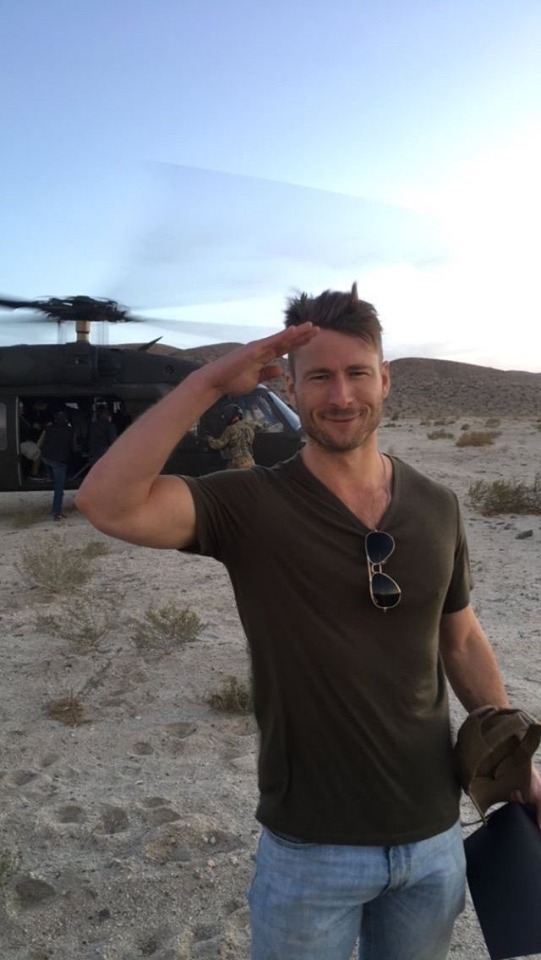
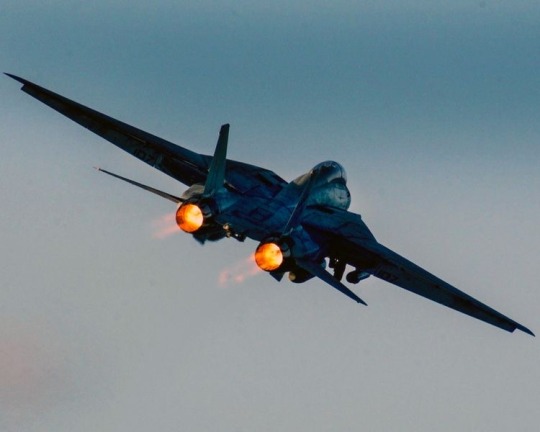
18+, minors dni. If I notice that you are an ageless / underage blog, you will be blocked

Ongoing Series
Operation Apollo
After a threat is made against her life, the President’s grown up daughter gets her security tripled. Ex-Navy and current Secret Service, Jake Seresin is devoted to being the best at everything he does. He isn’t going to let a bratty little girl cost him this job.
In Too Deep
Jake Seresin had sworn he was never going to be a father. He liked his life the way that it was, child-free, stress free and chaos free. Free being the key word. After falling for you, it becomes clear that Jake is in for an attitude adjustment, whether he likes it or not.
Safe Zone (+ Bradley Bradshaw)
A team of elite naval aviators holding down the fort at the North Island Air Base while they wait for reinforcements after a virus sweeps the continental U.S. - only, it’s been three months and no one has shown up.
Power and Control
This had been a business deal. An arrangement with strict rules, a written contract and financial ties. One that you had both agreed to. Financial freedom for you, and escape from his life for him. But now, you want more. Sugar daddy!Jake au.
Like This Forever
Being Jake’s tour manager had been a dream come true. Your childhood best friend, the first boy you ever loved — seeing his own dreams come true, the crowds screaming his name. Until those faint pink lines had shown up right before Jake’s six month long North American tour had kicked off. Country-Singer!Jake, childhood friends to lovers, accidental pregnancy au.
Aeterna — masterlist
Eternity and the related concept of infinity. The summer you strayed from home. 70s circus supernatural thriller, also x bradley.

Drabble Series
The Road Less Traveled
Series of blurbs and drabbles about your dad’s best friend, Jake, keeping you safe through the apocalypse. Zombie au.

One-Shots
Ego Check
The Last Word
Fair Game
Our Final Night Alive

#jake seresin imagine#jake seresin smut#jake hangman seresin#jake seresin#jake hangman x reader#jake seresin x reader#jake seresin au#glen powell
768 notes
·
View notes
Text
Ways English borrowed words from Latin
Latin has been influencing English since before English existed!
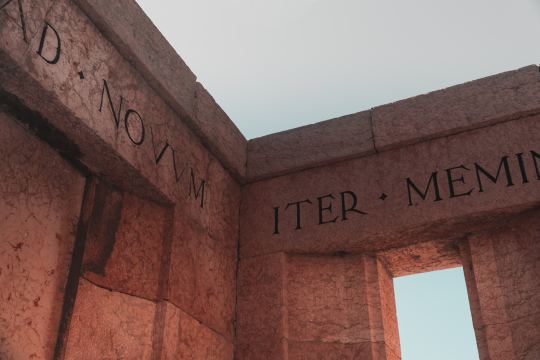
Here’s a non-exhaustive list of ways that English got vocabulary from Latin:
early Latin influence on the Germanic tribes: The Germanic tribes borrowed words from the Romans while still in continental Europe, before coming to England.
camp, wall, pit, street, mile, cheap, mint, wine, cheese, pillow, cup, linen, line, pepper, butter, onion, chalk, copper, dragon, peacock, pipe, bishop
Roman occupation of England: The Celts borrowed words from the Romans when the Romans invaded England, and the Anglo-Saxons later borrowed those Latin words from the Celts.
port, tower, -chester / -caster / -cester (place name suffix), mount
Christianization of the Anglo-Saxons: Roman missionaries to England converted the Anglo-Saxons to Christianity and brought Latin with them.
altar, angel, anthem, candle, disciple, litany, martyr, mass, noon, nun, offer, organ, palm, relic, rule, shrine, temple, tunic, cap, sock, purple, chest, mat, sack, school, master, fever, circle, talent
Norman Conquest: The Norman French invaded England in 1066 under William the Conqueror, making Norman French the language of the state. Many words were borrowed from French, which had evolved out of Latin.
noble, servant, messenger, feast, story, government, state, empire, royal, authority, tyrant, court, council, parliament, assembly, record, tax, subject, public, liberty, office, warden, peer, sir, madam, mistress, slave, religion, confession, prayer, lesson, novice, creator, saint, miracle, faith, temptation, charity, pity, obedience, justice, equity, judgment, plea, bill, panel, evidence, proof, sentence, award, fine, prison, punishment, plead, blame, arrest, judge, banish, property, arson, heir, defense, army, navy, peace, enemy, battle, combat, banner, havoc, fashion, robe, button, boots, luxury, blue, brown, jewel, crystal, taste, toast, cream, sugar, salad, lettuce, herb, mustard, cinnamon, nutmeg, roast, boil, stew, fry, curtain, couch, screen, lamp, blanket, dance, music, labor, fool, sculpture, beauty, color, image, tone, poet, romance, title, story, pen, chapter, medicine, pain, stomach, plague, poison
The Renaissance: The intense focus on writings from classical antiquity during the Renaissance led to the borrowing of numerous words directly from Latin.
atmosphere, disability, halo, agile, appropriate, expensive, external, habitual, impersonal, adapt, alienate, benefit, consolidate, disregard, erupt, exist, extinguish, harass, meditate
The Scientific Revolution: The need for new technical and scientific terms led to many neoclassical compounds formed from Classical Greek and Latin elements, or new uses of Latin prefixes.
automobile, transcontinental, transformer, prehistoric, preview, prequel, subtitle, deflate, component, data, experiment, formula, nucleus, ratio, structure
Not to mention most borrowings from other Romance languages, such as Spanish or Italian, which also evolved from Latin.
Further Reading: A history of the English language (Baugh & Cable)
156 notes
·
View notes
Text
Finished The Wages of Destruction.
Solid 9/10.
Core ideas to take away:
work creation was a minor element of Nazi economic policy, a distant secondary concern after rearmament
rearmament had widespread public support in germany
shifting to autarky took extremely hacky and likely long-run unsustainable export controls, and even *export subsidies* because imports were still an inescapably vital input to industrial production in
controlling big business was largely a "soft co-opting" project while the agriculturalists were insane morons who were much more staunchly pro-nazi
once at war, Germany was going for broke from the very beginning and there was near-zero slack they could've squeezed out more war production from
truly pitiful productivity rate from Germany's conquered continental empire - the workers were far far more productive if deported to Germany than working in home countries
German surface navy seems useless, they didn't even have the oil to run the ships, and metal would've been better used elsewhere
Speer was a shit, Tooze hates hates him
bombing campaign actually was successful! specifically taking out the Ruhr
"blitzkrieg" doctrine was developed as they went; original 1940 invasion of France battleplan was to go "right up the center" not through the Ardennes and pre-battle production focused on heavy artillery ammunition
Bigger points: German "Strategy"
Germany escalated from diplomatic crisis to war with Poland/UK/France, and to war with the Soviet Union, and then America, out of a series of perceived closing windows of opportunity. First one was seeing UK/French production overtaking them in rates and catching up on stocks. In 1940 the US fully commits to aiding Britain, creating sense of "the bombers are coming eventually" and need to gain immediate advantage by conquering the Soviet Union.
Bizarrely, German production was focused on the Luftwaffe in preparation for fighting US/UK air war as Germany was getting ready for Barbarossa!
Declaration of war on US pitched as confirming alliance with Japan, but still feels stupid. Germany could just stay quiet and force US to either engineer entry to European conflict another way or stay out. Still seems less stupid, considering this is at a time when Barbarossa is coming apart.
But overall, a sound if massively risky plan assuming you accept the insane basic assumptions. Hitler's strategic vision often gets assumed to be terrible out of disgust for the consequences of his actions and their failure.
I really do wonder what the vibe was among German economic elite from 1942 onwards, it's obvious the war is not winnable, that you're very fucked, and that everyone is coming to kill you.
Anyways, good book and worth reading/listening to. Tooze could've slimmed down on the pre-war stuff. I find him vaguely irritating with how he brings up irrelevant things just to show how smart he is but that's probably just envy.
P.S.
The original Volkswagen was just a massive scam with no actual civilian cars being produced despite taking all the payments for the vehicles. Possibly suggests two dominant strains of conservatism? Former is old aristocratic conservatism of the nobility or classic US elite; latter is the populist oppositional culture right-wingism which is about 64% scam artists.
70 notes
·
View notes
Text
Socialism: Utopian and Scientific - Part 10
[ First | Prev | Table of Contents | Next ]
To return to our British bourgeois. The French Revolution gave him a splendid opportunity, with the help of the Continental monarchies, to destroy French maritime commerce, to annex French colonies, and to crush the last French pretensions to maritime rivalry. That was one reason why he fought it. Another was that the ways of this revolution went very much against his grain. Not only its "execrable" terrorism, but the very attempt to carry bourgeois rule to extremes. What should the British bourgeois do without his aristocracy, that taught him manners, such as they were, and invented fashions for him – that furnished officers for the army, which kept order at home, and the navy, which conquered colonial possessions and new markets aboard? There was, indeed, a progressive minority of the bourgeoisie, that minority whose interests were not so well attended to under the compromise; this section, composed chiefly of the less wealthy middle-class, did sympathize with the Revolution, but it was powerless in Parliament.
Thus, if materialism became the creed of the French Revolution, the God-fearing English bourgeois held all the faster to his religion. Had not the reign of terror in Paris proved what was the upshot, if the religious instincts of the masses were lost? The more materialism spread from France to neighboring countries, and was reinforced by similar doctrinal currents, notably by German philosophy, the more, in fact, materialism and free thought generally became, on the Continent, the necessary qualifications of a cultivated man, the more stubbornly the English middle-class stuck to its manifold religious creeds. These creeds might differ from one another, but they were, all of them, distinctly religious, Christian creeds.
While the Revolution ensured the political triumph of the bourgeoisie in France, in England Watt, Arkwright, Cartwright, and others, initiated an industrial revolution, which completely shifted the centre of gravity of economic power. The wealth of the bourgeoisie increased considerably faster than that of the landed aristocracy. Within the bourgeoisie itself, the financial aristocracy, the bankers, etc., were more and more pushed into the background by the manufacturers. The compromise of 1689, even after the gradual changes it had undergone in favor of the bourgeoisie, no longer corresponded to the relative position of the parties to it. The character of these parties, too, had changed; the bourgeoisie of 1830 was very different from that of the preceding century. The political power still left to the aristocracy, and used by them to resist the pretensions of the new industrial bourgeoisie, became incompatible with the new economic interests. A fresh struggle with the aristocracy was necessary; it could end only in a victory of the new economic power. First, the Reform Act was pushed through, in spite of all resistance, under the impulse of the French Revolution of 1830. It gave to the bourgeoisie a recognized and powerful place in Parliament. Then the Repeal of the Corn Laws [a move toward free- trade], which settled, once and for all, the supremacy of the bourgeoisie, and especially of its most active portion, the manufacturers, over the landed aristocracy. This was the greatest victory of the bourgeoisie; it was, however, also the last it gained in its own exclusive interest. Whatever triumphs it obtained later on, it had to share with a new social power – first its ally, but soon its rival.
The industrial revolution had created a class of large manufacturing capitalists, but also a class – and a far more numerous one – of manufacturing work-people. This class gradually increased in numbers, in proportion as the industrial revolution seized upon one branch of manufacture after another, and in the same proportion it increased its power. This power it proved as early as 1824, by forcing a reluctant Parliament to repeal the acts forbidding combinations of workmen. During the Reform agitation, the workingmen constituted the Radical wing of the Reform party; the Act of 1832 having excluded them from the suffrage, the formulated their demands in the People's Charter, and constituted themselves, in opposition to the great bourgeois Anti-Corn Law party, into an independent party, the Chartists, the first working-men's party of modern times.
[ First | Prev | Table of Contents | Next ]
26 notes
·
View notes
Photo
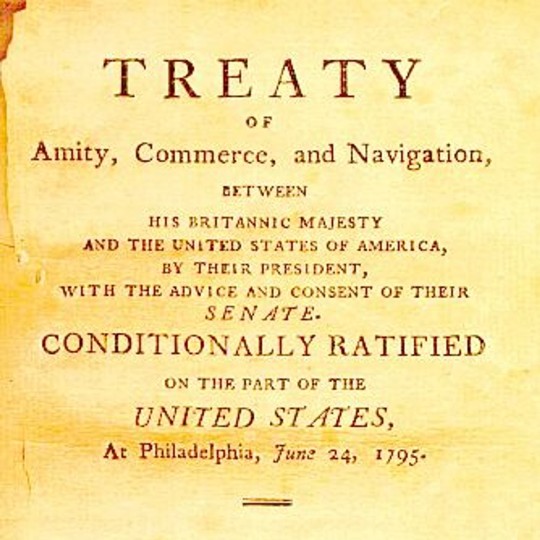
Jay Treaty
The Jay Treaty, formally known as the Treaty of Amity, Commerce, and Navigation, Between His Britannic Majesty and the United States of America, was a controversial treaty signed by representatives of the United States and Great Britain in November 1794. It sought to resolve issues left over from the American Revolution (1765-1789) and establish trade between the two nations.
At the time of the treaty's signing, the United States appeared to be on the brink of war with Great Britain. Believing the United States to be reneging on agreements made in the Treaty of Paris, Britain refused to evacuate its troops from forts in the Northwest Territory and attacked American shipping in the French West Indies, seizing over 250 American merchant vessels and impressing their crews into service in the Royal Navy. Although many Americans clamored for war, President George Washington (served 1789-1797) believed the young republic was not strong enough to withstand another war with Britain. Instead, he dispatched John Jay, Chief Justice of the United States, to negotiate a treaty that would, hopefully, avert an armed conflict.
Jay succeeded in avoiding war, and even managed to strengthen commercial ties with Britain; the US was granted 'most favored nation' status at British ports, and American merchants were given limited trade rights in the British West Indies. However, the treaty came up short in many respects, as it significantly did not protect American sailors from future impressment. But the most controversial aspect was that the treaty created stronger political and economic ties between the United States and Britain, something that many Americans feared would lead to a re-emergence of aristocracy in the US. Riots broke out in many cities, and Jay was often burned in effigy. Even President Washington was abused in the press. A new political faction, the Democratic-Republican Party, emerged to combat the growing power of the pro-British Federalist Party. Revolutionary France, meanwhile, interpreted the Jay Treaty as an Anglo-American alliance and also began attacking American shipping, eventually resulting in the brief Quasi-War (1798-1800).
Background: The Threat of War
The Treaty of Paris of 1783 ended the American Revolutionary War, creating a state of fragile and uneasy peace between the fledgling United States and its former mother country, Great Britain. The treaty was generally regarded as favorable to the Americans: it more than doubled the size of the United States, whose borders now stretched as far west as the Mississippi River, and the British promised to evacuate their soldiers from these boundaries. In return for these concessions, Britain expected that all prewar debts owed by American borrowers to British lenders would still be paid and that state governments would stop confiscating the properties of Loyalists (Americans who had remained loyal to the British Crown during the Revolution). These were among the main components of the ten articles of the treaty, signed by American and British commissioners on 3 September 1783.
The ink on the treaty was barely dry, however, when troubles began to sprout. For much of its short existence, the United States had been plagued with economic difficulties; indeed, its recent attempt at a national currency, the Continental Currency, had failed after depreciating to the point of near worthlessness. State governments were imposing high taxes to begin paying off their own hefty war debts while Congress – under the terms of the Articles of Confederation – could not raise any taxes at all. Burdened by high taxes and inflation, many American debtors were unable to pay back their British creditors in a timely fashion. Additionally, many state governments were loath to take any pity on Loyalists, who were regarded as traitors; few were compensated for the properties that had been confiscated during the Revolution, with some states even continuing to seize Loyalist estates. Britain pointed to these two examples as evidence that the United States was not holding up its end of the bargain. In retaliation, the British maintained garrisons of troops in a series of forts in the Great Lakes region, which had been ceded to the US in the treaty. When the US complained, Britain promised that it would indeed evacuate these troops as promised – but only once the Americans had paid off all their debts.
Tensions between the two nations continued to simmer for the next decade. Then, in February 1793, Britain declared war on Revolutionary France. By this point, the French Revolution was in full swing; a French Republic had been proclaimed, King Louis XVI of France had lost his head, and hundreds of thousands of French citizen-soldiers were pouring into Europe to deliver liberty, equality, and fraternity at the points of their bayonets. Many Americans were quick to express their support for Revolutionary France, donning tricolor cockades, singing revolutionary songs, and opening political clubs called Democratic-Republican societies, in which they toasted the French Republic and denounced aristocracy. President George Washington, however, was more hesitant to offer support to the revolutionaries; such an act would certainly bring the US into conflict with Britain, a conflict that Washington knew they were not ready for. Instead, he issued a Proclamation of Neutrality on 22 April 1793, in which he promised to keep the United States out of the French Revolutionary Wars.
It did not take long for Britain to disregard this neutrality. Without offering so much as a warning, British ships began seizing American merchant vessels in the French West Indies, considering any ship carrying French cargo to be a valid prize. Over the course of the next year, around 250 American ships were captured and their crews were impressed into service with the Royal Navy.
Impressment of American Sailors into the British Navy
Howard Pyle (Public Domain)
At the same time, the British used their forts in the Great Lakes region to offer support to the Northwest Confederacy, a loose coalition of Native American nations currently at war with the United States. These were blatant acts of aggression that could not be ignored; many Americans, particularly those associated with the Democratic-Republican societies, began to demand war. Other Americans were not so hasty. The Federalist Party, a nationalist political faction led by Alexander Hamilton, was horrified by the chaos and bloodshed of the French Revolution and did not want the US to fall under the influence of Revolutionary France. On the contrary, the Federalists viewed Britain as the natural ally of the United States; they believed stronger ties with the former mother country were vital for the survival of the US. Influenced by these Federalists, and still desirous to avoid war, President Washington agreed to send an envoy to London to hopefully reach an agreement and pull the quarreling countries away from the brink.
Continue reading...
26 notes
·
View notes
Text

On this day in 1787, thirty-nine brave men signed the proposed U.S. Constitution, recognizing all who are born in the United States or by naturalization, have become citizens
+
LETTERS FROM AN AMERICAN
September 17, 2024
Heather Cox Richardson
Sep 18, 2024
In 1761, 55-year-old Benjamin Franklin attended the coronation of King George III and later wrote that he expected the young monarch’s reign would “be happy and truly glorious.” Fifteen years later, in 1776, he helped to draft and then signed the Declaration of Independence. An 81-year-old man in 1787, he urged his colleagues at the Constitutional Convention in Philadelphia to rally behind the new plan of government they had written.
“I confess that there are several parts of this constitution which I do not at present approve, but I am not sure I shall never approve them,” he said, “For having lived long, I have experienced many instances of being obliged by better information, or fuller consideration, to change opinions even on important subjects, which I once thought right, but found to be otherwise.”
The framers of the new constitution hoped it would fix the problems of the first attempt to create a new nation. During the Revolutionary War, the Second Continental Congress had hammered out a plan for a confederation of states, but with fears of government tyranny still uppermost in lawmakers’ minds, they centered power in the states rather than in a national government.
The result—the Articles of Confederation—was a “firm league of friendship” among the 13 new states, overseen by a congress of men chosen by the state legislatures and in which each state had one vote. The new pact gave the federal government few duties and even fewer ways to meet them. Indicating their inclinations, in the first substantive paragraph the authors of the agreement said: “Each state retains its sovereignty, freedom and independence, and every Power, Jurisdiction and right, which is not by this confederation expressly delegated to the United States, in Congress assembled.”
Within a decade, the states were refusing to contribute money to the new government and were starting to contemplate their own trade agreements with other countries. An economic recession in 1786 threatened farmers in western Massachusetts with the loss of their farms when the state government in the eastern part of the state refused relief; in turn, when farmers led by Revolutionary War captain Daniel Shays marched on Boston, propertied men were so terrified their own property would be seized that they raised their own army for protection.
The new system clearly could not protect property of either the poor or the rich and thus faced the threat of landless mobs. The nation seemed on the verge of tearing itself apart, and the new Americans were all too aware that both England and Spain were standing by, waiting to make the most of the opportunities such chaos would create.
And so, in 1786, leaders called for a reworking of the new government centered not on the states, but on the people of the nation represented by a national government. The document began, “We the People of the United States, in order to form a more perfect Union….”
The Constitution established a representative democracy, a republic, in which three branches of government would balance each other to prevent the rise of a tyrant. Congress would write all “necessary and proper” laws, levy taxes, borrow money, pay the nation’s debts, establish a postal service, establish courts, declare war, support an army and navy, organize and call forth “the militia to execute the Laws of the Union” and “provide for the common Defence and general Welfare of the United States.”
The president would execute the laws, but if Congress overstepped, the president could veto proposed legislation. In turn, Congress could override a presidential veto. Congress could declare war, but the president was the commander in chief of the army and had the power to make treaties with foreign powers. It was all quite an elegant system of paths and tripwires, really.
A judicial branch would settle disputes between inhabitants of the different states and guarantee every defendant a right to a jury trial.
In this system, the new national government was uppermost. The Constitution provided that “[t]he Citizens of each State shall be entitled to all Privileges and Immunities of Citizens in the several States,” and promised that “the United States shall guarantee to every State in this Union a Republican Form of Government, and shall protect each of them against Invasion….”
Finally, it declared: “This Constitution, and the Laws of the United States which shall be made in Pursuance thereof; and all Treaties made, or which shall be made, under the Authority of the United States, shall be the supreme Law of the Land; and the Judges in every State shall be bound thereby, any Thing in the Constitution or Laws of any State to the Contrary notwithstanding.”
“I agree to this Constitution with all its faults, if they are such,” Franklin said after a weary four months spent hashing it out, “because I think a general Government necessary for us,” and, he said, it “astonishes me…to find this system approaching so near to perfection as it does; and I think it will astonish our enemies, who are waiting with confidence to hear that our…States are on the point of separation, only to meet hereafter for the purpose of cutting one another’s throats.”
“On the whole,” he said to his colleagues, “I can not help expressing a wish that every member of the Convention who may still have objections to it, would with me, on this occasion doubt a little of his own infallibility—and to make manifest our unanimity, put his name to this instrument.”
On September 17, 1787, they did.
LETTERS FROM AN AMERICAN
HEATHER COX RICHARDSON
#U.S.Constitution#Letters From An American#Heather Cox Richardson#history#American History#Benjamin Franklin
22 notes
·
View notes
Text

When the United States was created British statesmen were concerned that a country dominated by ports and oceanic trade might become a seapower rival. [...] Instead America lost sight of the sea. [...] Jefferson detested the ship-owners and merchants of the north-east and by 1812 ships and the sea were a minor issue when the United States invaded Canada and Spanish Florida. Both attacks failed, leaving the Madison administration, which had ignored the navy, to rely on privateering, the strategic choice of weak naval powers.
— Andrew Lambert, Seapower States: Maritime Culture, Continental Empires, and the Conflict That Made the Modern World.
Print by Nathaniel Currier of the American privateer General Armstrong firing on British boats during the War of 1812 (LOC)
#war of 1812#age of sail#privateering#military history#naval history#andrew lambert#napoleonic#seapower states#maritime history#the sea#us history
24 notes
·
View notes
Text
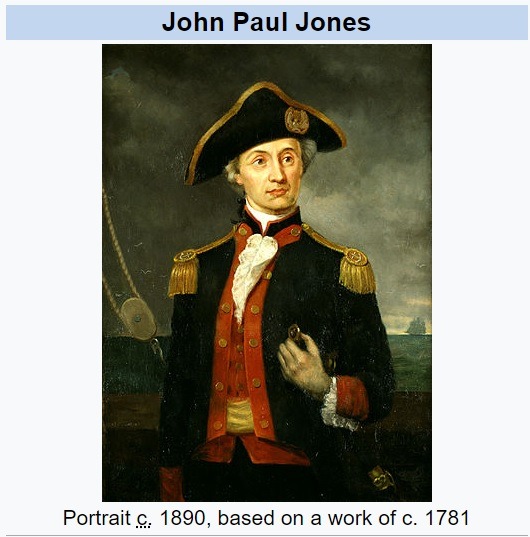
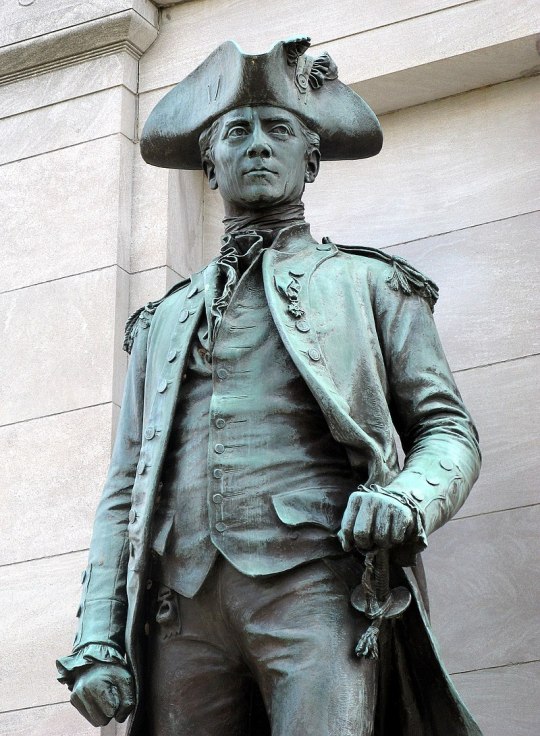
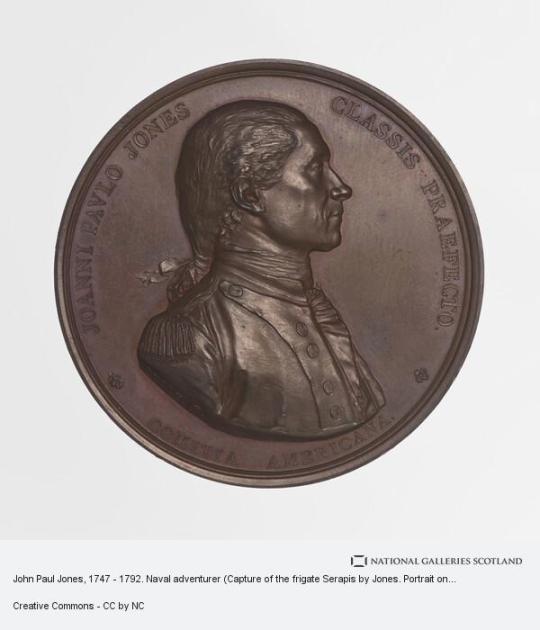
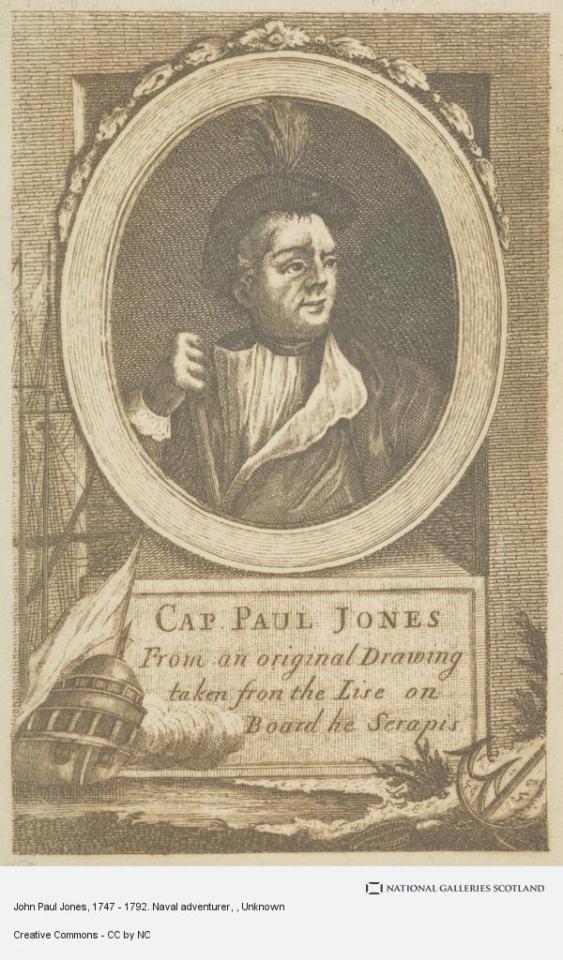
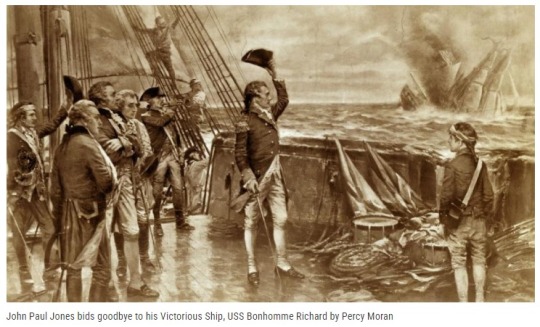
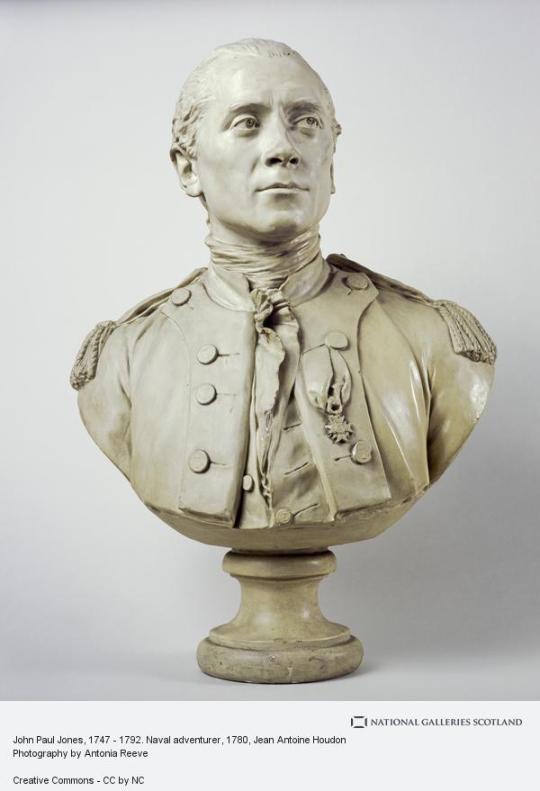
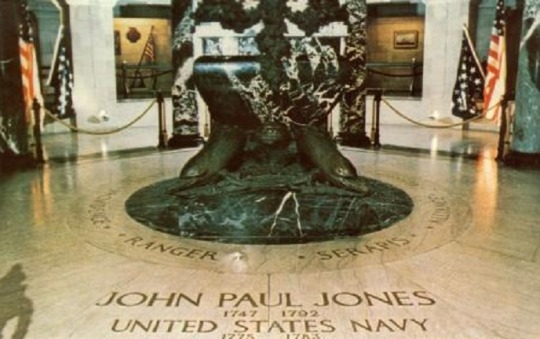
On July 6th 1747 Scottish naval figure, John Paul Jones, was born.
Might as well start the day off with a biggie, John Paul was a massive figure in the 18th century and persistant pain in the arse to the British, it's rather a long post, but I hope you learn how this guy was hailed as a hero or villain by many, read on ...................
Born in Kirkbean, where his father was the head gardener of the Arbigland Estate. John was born as “John Paul” but would add Jones later in his life. He was born the fourth child of seven and one of only five of such made it to adulthood. John Paul Jones isremembered in history as a naval hero to some and a pirate to others.
John had an education, being sent to Kirkbean School. However, he spent much of his time off at the nearby port of Carsethorn. Whenever he could he ran down to the port where he would talk to sailors and clamber all over the ships; it was clear that the sea was calling John.
At the age of just thirteen he signed on and began an apprenticeship for John Younger, a Scottish merchant shipper. His first voyage as a ship’s boy took him to the Americas, sailing to Barbados and then to Virginia where he stayed with his older brother William who had emigrated there and strived as a tailor.
After returning to the to Britain, John Paul had found that John Younger’s business was failing, and he was released from his apprenticeship. Now seventeen, he entered the slave trade. Within two years he transferred as first mate to the ship Two Friends of Kingston, Jamaica in 1766. The ship was only fifty feet long and after several voyages to and from Africa, John quit the slave trade in disgust calling it an “abominable trade” and booked passage back to Scotland. During the voyage, both the captain and first mate died of fever; John Paul was the only man on the ship qualified to bring the ship, named John, home safely. The owners of the ship were so pleased that they appointed him master and supercargo of the ship, the latter being an officer on a merchant ship in charge of the commercial concerns of the voyage.
Now at the age of twenty-one, John Paul Jones had become a captain. He adopted the manner of a young gentleman who was always neatly dressed and had an eye for the ladies but it's said he came with a violent temper. While captaining the John he was accused by the ships carpenter of excessive flogging. The carpenter was examined, and his complaint was dismissed. While returning the Scotland, that same carpenter died of Yellow Fever and John Paul was arrested and charged with murder. Evidence and a declaration from the master of the Barcelona Packet was sufficient to acquit John. The story will dog his entire life.
In the years prior to the American Revolution, John Paul took command of the Betsy in the fall of 1772. Trading back and forth between England and the West Indies, he accumulated a considerable sum. The flourishment all came to a halt when in 1773 John killed the ringleader of a mutiny with his sword aboard his ship in a dispute over wages. The man was a local of the West Indies, feeling was against John and to evade trial, he fled to Virginia. Here, he changed his named to John Paul Jones.
While in Virginia, Jones’ sympathies were with the colonists and the rebel cause. When Congress formed the Continental Navy, Jones rushed to Philadelphia to offer his services and was commissioned as first lieutenant in December 1775. At the time the Continental Navy consisted of a handful of ships; Jones was lieutenant of the Alfred and then later captain of the Providence. His exploits took him to the West Indies, where he distinguished himself against the British ship Glasgow. In 1776 he switched commands between Alfred and Providence as he operated in the Atlantic Ocean. He captured eight "prizes", sunk and burnt another eight, and towed to port several prizes to end the year.
In June 1777, Jones was appointed to the newly built Ranger. Sailing to the British Isles, he took several prizes before arriving in Brest, France in May 1778 where he was hailed as a hero. Operating out of Brest, Jones led a cruise to the Irish Sea capturing or destroying small vessels. This cruise made Jones a feared household name in Britain.
Returning to Brest once again, Jones was given command of the Duc de Duras, which he had converted to a warship. He renamed her the Bonhomme Richard in honor of Benjamin Franklin. In August 1779 he set sail for Britain again with a squadron of seven ships, raiding commerce around Scotland and Ireland for the better part of the month.
On September 23rd, Jones engaged a merchant fleet which consisted of the HMS Serapis and Countess of Scarborough. Jones was outgunned by the Serapis but thanks to his brilliant maneuvering, he lashed the Bonhomme Richard on to the enemy ship where a battle ensued for three and a half hours. When the enemy captain asked Jones if he would like to surrender, he promptly replied “I have not yet begun to fight!” Jones and his crew were victorious, but Bonhomme Richard began to sink. Jones transferred his remaining crew to the surrendered Serapis and Scarborough and sailed for the Netherlands.
Later he received a gold sword and the Order of Military Merit from Louis XVI. In 1787 Congress passed a vote of thanks for his honor of the American Fleet and they gave him a gold medal. When returned to America in 1781, Jones spent the remaining years of the war advising on the establishment of the navy and the training of naval officers. Jones is often referred to as the Father of the American navy.
After the Americans had won their independence, Jones offered his services to the Russian Empress Catherine II and was granted the rank of rear admiral, serving there for about two years. In May 1790 he returned to Paris where he spent the rest of his life in failing health. He wrote letters to his two estranged sisters in Scotland and to the French Minister of Marine to pay salaries to the men of Bonhomme Richard. On July 18th, 1792, Jones died at the age of 45 in his apartment in Paris.
For near on a century, John Paul Jones' body laid in an unmarked grave for foreign Protestants. In the late 1800s, with a great American naval expansion encouraged by Teddy Roosevelt, intensive research was made to find his body, which it was in 1905. Jones’ body was brought back on USS Brooklyn, and as the ship sailed into Chesapeake Bay seven battleships met them and fired off salutes. In 1913, his body was finally laid to rest at the chapel crypt of Annapolis Naval Academy, in a magnificent marble sarcophagus modeled after the tomb of Napoleon, his tomb is a major tourist attraction in the Maryland capital.
26 notes
·
View notes
Text
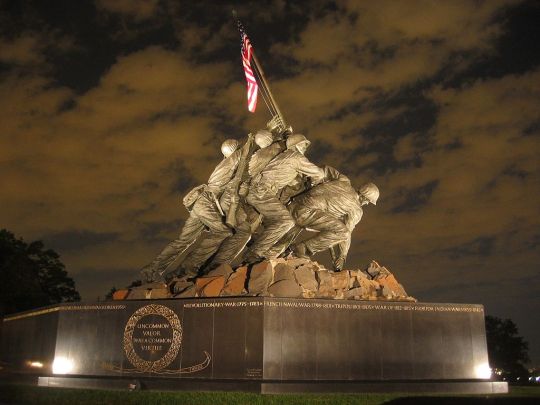
Happy Birthday United States Marine Corps!
On this day in 1775, the Continental Congress passes a resolution requiring that “two Battalions of Marines be raised” to support the recently organized Continental Navy. The resolution further stipulated that no person be enlisted, except “such as are good seamen, or so acquainted with maritime affairs as to be able to serve to advantage by sea, when required.”
The first commanding officer of the Marines was Samuel Nicholas. He began recruiting new members immediately, and he reportedly turned to a tavern owner named Robert Mullan for help. As the story goes, the two men set up shop in Mullan’s tavern, the Tun Tavern. Thus, the tavern is considered by many to be the birthplace of the Marine Corps.
The story continues here: https://www.taraross.com/post/tdih-usmc-birthday
#tdih#otd#this day in history#history#history blog#America#freedom#united states marines#usmc#us marine corps#sharethehistory
74 notes
·
View notes
Note
WAIT I forgot you’re the brilliant mind behind BOE Game Night ☺️ if the kids played it, how do you think it’d go? Who is left lying on the floor in shock?
Hmmm, good question. Let's check in on the teens and pre-teen and see how it's going.
Froggy shoved more cheese crisps into her mouth as she leaned back onto the sofa. She probably could have gone to bed a while ago when Ori did, but watching these two bicker was just too fun.
The pieces were scattered along the map in a catspaw. Nyx and Cricket were virtually two sides of the same coin, Froggy noticed. Both grabbed the larger continental landmasses in opposite hemispheres and inciting smaller land wars for resources. Neither one of them had gone in for a total invasion. Nyx could probably do it from the north, Froggy thought. Although if Cricket stopped trying to show off and be competitive, she could win with her navy.
All of the adults were gone for the evening and the children were left to their own devices at the River House. Froggy began the game as normal, and she and Orianna had paired up. The Land of Rainbow Pegasus held it's own quite well until Cricket colonized them when Ori fell asleep at the table. Froggy didn't mind. She preferred more sophisticated strategy games, like chess, anyways.
Froggy felt a little nudge in her mind, like an intrusive thought.
"No powers, Nyx!" Cricket snapped. Froggy just crunched into her cheese crisps. Crumbs scattered down her dress, but she didn't care anymore.
"I was just gonna ask for some cheese crisps," he said as he reached for her bowl.
Froggy kicked his arm away. "Nuh uh, there are MINE."
"Nuala made them for all of us," Nyx objected, making another grab. But Froggy dumped the rest of the bowls contents into her mouth. "Focus on your army up north, dummy.' she said as she exaggerated every single crunch. She could swear Nyx muttered, brat, under his breath.
"You can't help him," Cricket hissed. Her red hair was standing on end from a night of constantly running her hands through it in frustration.
"Focus on your navy," Froggy shrugged, "There, I helped you."
Nyx doubled over in hysterical laughter on the floor while Cricket launched a pretzel at her sister's face. Froggy caught it and popped it in her mouth, and Nyx howled.
"You guys are too loud!"
Ori stood at the door in her nightgown. Her wings were droopy and her hair was mussed. She dragged her little stuffed pegasi on the ground, filthy from love and use.
"We're sorry," Froggy said, as she patted the seat next to her. "We're almost done." Ori shuffled over and cuddled up to Froggy.
"We're not even close to being done," Cricket said. She swiftly moved a cluster of pieces of her navy towards a small peninsula.
"How come?" Ori asked as she peered over the table.
"Nobody has won yet," Nyx said, "do you need to go to the bathroom?"
Ori shook her head and pointed at Nyx's pieces, "Is this you Nyxie?" she asked, her silver eyes large and owlish.
Nyx nodded, "And Cricket is here and here," he pointed to several places on the board.
Ori picked up Nyx's bright red General piece, "How come you don't go here? You can make a circle like Ring Around the Rosy." Ori moved the piece to the northern plains, effectively trapping Cricket's largest army into a valley and stranding her navy on a barren shore.
For a moment, no one spoke. Froggy ran through her calculations again. She saw the northern attack but not the way Ori did it. How did she-
"ARE YOU KIDDING ME?" Cricket shouted, her eyes bulging out of her head. Nyx began to laugh. Deep, wheezing belly laughs and screams as Cricket blinked at the board. "There is no way," Cricket said in a daze, "There is no way she did that. She is FIVE."
"Well, she is the General's daughter," Froggy said with a giggle. She grabbed Ori in for a hug, "and she has freed us from suffering!"
Ori hugged Froggy back, turning her innocent and sweet face up.
"Are there any more cheese crisps left?"
#next gen oc#froggy loves to stir shit#ori literally thought they could play ring around the rosy#cricket hates her life#nyx is in his troll era#acotar#nyx acotar#feysand#elucien#nessian
16 notes
·
View notes
Note
Have you ever heard about the Lobster War between Brasil and France?
I know it was a little more complicated than that but every time I remember about it, it’s just sound so silly for me every damm time
I JUST LOOKED IT UP AND IM ASLKJDALSNKDLNECEKNWL
I CAN'T BELIEVE LOBSTERS ARE SO SOUGHT AFTER THAT NOT ONLY DID FRANCE AND BRAZIL HAVE A DISPUTE OVER IT, BRAZIL EXTENDED THEIR TERRITORIAL WATERS TO END IT SAKDJALKSDJALSDJLAKSJDF
Brazil: "you said you wanted to research our lobsters, why do you have fishing vessels?"
France: "we lost our African colonies, we need lobsters. you guys have lobsters it's fine"
Brazil: "no, you're overfishing and also illegal, we didn't give you permission get out"
France: "lobsters can swim so we can fish for them since they're in the ocean and we're not on your land. Europe needs lobsters fuck you and we are now sending 3 destroyers, 5 frigates, 1 cruiser, 1 tanker and 1 dispatch boat with the fishermen now"
Brazil: "no they crawl along the continental shelf, and fuck you we're extending our territory further into the waters now and if you don't get out we will send the air force and navy to get you out you BITCH—"
#mochi asks#to-many-thoughts-help#professor mochi#why is this so funny aslkjdjalksjdalk#i guess europe just really loves their lobsters???#just import them from maine or something idk#anyways theres more nuance to this but this was the funniest way to summarize it
35 notes
·
View notes
Text
I'm gonna talk Elder Scrolls 6 and fantasy politics here for a second. Maybe a long post, who knows.
I think that the Elder Scrolls 6, which is all but confirmed to be set in Hammerfell, is going to be about politics. Like, full stop, it has to be. The overwhelming presence of the Empire as of TES 5 is undeniable, with the territories of Cyrodiil, High Rock, and half of Skyrim being under Imperial control.
If the civil war in Skyrim canonically goes to the Empire, then their coverage will cover the entirety of 3 provinces out of the 9 on Tamriel. They will control a THIRD of the continent.
But that's not all, because the Empire is backed (some might even say controlled) by the Aldmeri Dominion. The Dominion's geopolitical grasp is comprised of the Summerset Isles, Valenwood, and Elsweyr. That's another third of Tamriel. With the Dominion and the Empire's forces combined, they will be in control of 2/3 of all of Tamriel. Let's see who remains:
Morrowind: After the eruption of Red Mountain in the early 4th Era, this region is almost completely uninhabitable, with even its ashen-skinned residents (the Dunmer) choosing to leave their home in search of refuge in Skyrim, Cyrodiil, and even Black Marsh, two out of the three of which absolutely despise the dark elves. They are a shattered people, and have virtually no presence in the continental war besides what they lend to their respective places of refuge.
Black Marsh: Inhabitable by pretty much only Argonians, who could have even spread their control to Morrowind due to their hardy biology. Though, I wouldn't count on it due to the Hist's control over their every action. I've never heard of a Hist tree growing in ash, so the likelihood of the Argonians taking Morrowind is slim. However, Black Marsh will probably be the last territory that the Dominion/Empire take, due to the inhospitable nature of it. Previous attempts to invade Black Marsh have proved ineffectual, and notably the only battles the Argonians seem to win are those involving the defense of their home. They are not an offensive people. I suspect that the Dominion would sooner burn the marshes to the ground than attempt to colonize them.
And last but not least Hammerfell: Supposedly the setting for TES 6, and surrounded on all sides by Dominion and Empire alike, with the Imperial territories of High Rock, Western Skyrim, AND Cyrodiil surrounding them, and the Aldmeri territories of the Isles and Valenwood to the south. Hammerfell is basically fucked. It's gonna take a whole lot of divine intervention to—...what's that you say? There's an Elder Scrolls protagonist on the way...and Hammerfell's history recounts tales of people who can summon magic swords? Well I think the Dominion may find some resistance in Hammerfell after all.
The Dominion is basically guaranteed a victory over Hammerfell, especially if what the Alik'r from Skyrim's "In My Time of Need" quest are to be believed, and that Saadia's betrayal meant that the Dominion (whom most if not all people in Hammerfell hate) was able to take the city of Taneth in the war. Now if we look at a map like this:

If the Dominion's forces are coming from the south, it means they have a strong enough navy to oppose Hammerfell's, which is notably a province known for their pirate activity (see the Elder Scrolls: Redguard). And if they took a city as far north as Taneth, not only did they have to probably take Rihad to get there unopposed, but they also had to make it through that bay unscathed, meaning they either have strong enough outposts on that peninsula to oppose forces from Gilane OR they took Gilane too.
And if they took that whole south central and eastern part of the coast, and are coming from the sea, who's to say they haven't taken Stros M'kai and Helgathe as well?
The north stands basically no chance against the Empire, and the south has probably already been taken by the Dominion. All that leaves is...the huge fucking Alik'r Desert in the middle.
The game will probably start in Dragonstar or Elinhir, my bet goes to Elinhir because it's more on the Skyrim side, but Dragonstar is also almost equidistant from Elinhir and Skaven, with a straight shot to the Alik'r Desert. Plus, starting in Dragonstar after playing a game about literal dragons would be a nice little poke. Like, "hey, remember the dragons?" I wouldn't be surprised if there were a few dragons in the mountains that the Dragonborn missed. They could also have them be infinitely respawning, since they don't truly die unless their souls are absorbed by the Dragonborn. So there's your dragon tie-in, Bethesda, you freaks.
The story is likely going to be about the political struggle between the cultural identity of Hammerfell and the forces that seek to swallow it whole and reshape it in their image. There'll be some references to the Swordsingers of Yokudan legend, but whether or not we will be able to actually learn the technique is uncertain. And there will be a HEAVY Dwemer presence. In previous games we were given access to none other than the hammer of Malacath, Volendrung, which was once a Dwemer weapon corrupted into the image of the Orsimer god-daedra Malacath. The hammer, according to legend, was thrown from Morrowind all the way to the desert that we now call Hammerfell (guess why they call it that) and the dwarves made their new home there, founding the city of Volenfell. Not only am I certain that we will see Volendrung in TES 6, but there will likely be heavy Dwemer presence (metaphorically speaking, they are extinct after all) and Orsimer presence. We could potentially even see some dead Dwemer, in the form of ghosts, time travel visions, sentient automatons, or even some sort of lich. If so, we might get to see a struggle between the Dwemer and Orsimer over the control of Volendrung. The dwarves and orcs do seem to have a bit of shared history.
Overall, this game is gonna be huge, and i can't wait to play it when im 80.
Lemme know if I made any mistakes in the replies, and feel free to argue about fictional politics with me in reblogs :> may your road lead you to warm sands.
#text post#the elder scrolls#tes 5 skyrim#tes 6#tesblr#tes lore#fantasy politics#hammerfell#tamriel#skyrim#aldmeri dominion#ive been up for like an hour making this post please let it get notes
15 notes
·
View notes